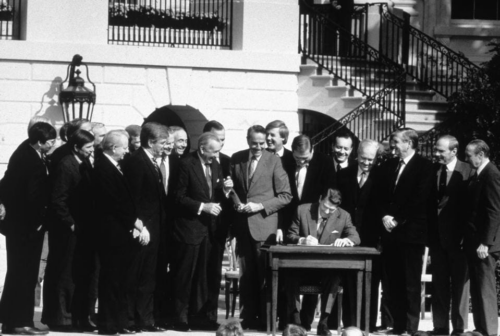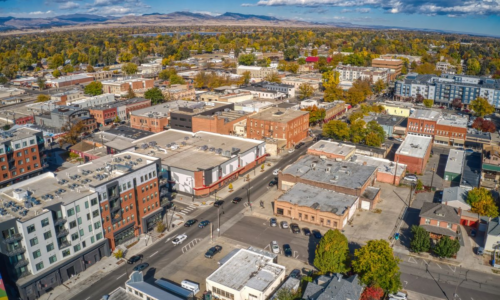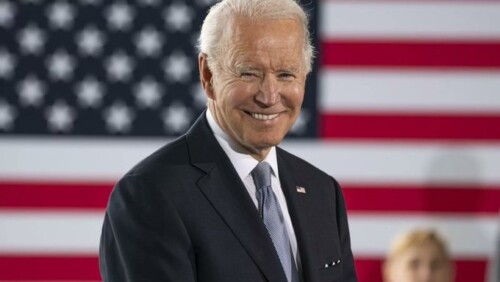As the GOP Debates Begin, Three Factors Explain This Year’s Presidential Clown Car
08.07.2015
This year’s overcrowded field of 17 GOP presidential candidates may be an amazing spectacle, but it really should come as no surprise. The so-called “presidential clown car” is parked at the intersection of three distinct rings in the circus of Republican politics: the party’s internal unhinging, an extraordinarily wide-open political field, and the electoral unfettering of billionaires.
In the past, it was the Democrats whose presidential politics were messy and unpredictable. The party catapulted previously obscure candidates such as Jimmy Carter, Bill Clinton and Barack Obama over the heads of more senior figures and right into the Oval Office. Yet once in office, Democratic presidents could expect little electoral deference from their fellow party members. In 1948 and 1968, segregationist Southern “Dixiecrats” ran as third-party candidates against fellow Democrats. In 1980, Ted Kennedy, via a primary challenge, did almost as much damage as the Ayatollah Khomeini to Carter’s reelection bid.
By comparison, Republican presidential politics was once as stable as the gold-standard dollar. For over a half century starting in 1952, every Republican ticket for president and vice president (except for 1964) included someone named Nixon, Bush or Dole. Presidential nominations almost always went to whoever had most patiently waited his turn in line. Indeed, nominees were generally household names who had been runners-up from prior nomination races, including Ronald Reagan (1980), the elder George Bush (1988), Bob Dole (1996), John McCain (2008) and Mitt Romney (2012).
Today, Republicans’ love of crown princes hasn’t entirely disappeared: runners-up from two prior primary battles — Rick Santorum from 2012 and Mike Huckabee from 2008 — have joined this year’s fray. And, of course, the field also includes the next-in-line member of the Bush family and the son of another previous contender, Rand Paul.
But as the overflowing debate stage will demonstrate, there are about another dozen active Republican hopefuls. And not withstanding the ludicrous Trump sideshow, no viable candidate is polling above the low teens or could be said to have broken out of the pack. This is all very untidy by the once orderly standards of the Republican Party.
Part of what ails Republican politics, as is so often the case, has a three word name: The Tea Party, which has taken to running little-known insurgents in primaries against more established (and more moderate) politicians. In 2014, Virginia GOP primary voters dumped House Majority Leader Eric Cantor like so many tea leaves into Boston Harbor. Senator Majority Leader Mitch McConnell was similarly “primaried” from the right, though he pulled through. And Speaker John Boehner always seems one reasonable statement or constructive compromise away from being toppled by Tea Party factions in the House.
And so, Republican primary voters have largely been liberated from their party’s longstanding traditions of deference and hierarchy. This shift is fueling the current free-for-all of governors, senators and several others with few discernible presidential qualifications. The political novice Ben Carson suiting up as commander-in-chief? The previously unelected Carly Fiorina starting out a political career at the very top? The noxious Donald Trump downsizing to smaller living quarters at 1600 Pennsylvania Avenue? Hey, somebody has to win this thing.
Fanning the flames is another under-appreciated statistic: This is only the second presidential election since 1928 without an incumbent president or vice president running for office. Aside from 2008, every one of those other twenty presidential elections included either an elected president seeking reelection (12 times); a sitting president who had succeed from the vice presidency (3 times); or the incumbent vice president (5 times).
All of this creates an exceptionally wide-open political field for both parties. On the Democratic side, Hillary Clinton can perhaps be considered a quasi-incumbent, being so closely linked to two prior Democratic administrations. But on the Republican side, none of the current candidates (Jeb Bush included) has held high-level office in a prior presidential administration.
For GOP aspirants, then, the slate is about as clean as slates can be – so why not try one’s luck in 2016? And in a post-Citizens United world, any alluringly extreme candidate who can catch the eye of a deep-pocketed tycoon will have the resources to stay in the game far longer than in the past.
Still, there is a spark of hope for Democrats who miss their party’s glory days of chaos during the primaries and noble defeat in the general election. Senator Bernie Sanders — previously unknown nationally and not even a registered Democrat — is steadily gaining traction against Hillary Clinton for the Democratic nomination. Thus Republicans should have faith: their opponents may yet find a way to snatch defeat from the jaws of victory.
This is cross-posted on the Huffington Post.





